

Judy Graubart
Movies for Judy Graubart...

Title: The Electric Company's Greatest Hits & Bits
Character: Self
Released: November 25, 2006
Type: Movie
When "The Electric Company" made its television debut in October 1971, it was instantly clear that it would fulfill its mission of helping struggling and reluctant readers. With a ground-breaking and diverse cast, clever writing, innovative direction, and an original visual and musical style, the show was so effective that by the end of its first season, nearly a quarter of all US schools were using the show in the classroom. Generations of young people learned to read from the series, making it one of the most important and enduring shows in American television history. "The Electric Company's Greatest Hits and Bits" is a clip-filled celebration featuring many of the series' most popular segments (with Bill Cosby, Morgan Freeman, Rita Moreno and the rest of the multi-talented Electric Company cast), and includes new interviews with cast members Jim Boyd, Judy Graubart, Skip Hinnant, Tom Lehrer, Rita Moreno, and Joan Rivers, as well as with series creator Joan Ganz Cooney.

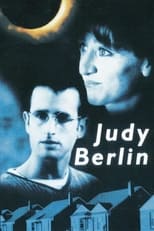
Title: Judy Berlin
Character: Ceil
Released: October 6, 1999
Type: Movie
Judy Berlin is an aspiring actress whose idealism is at odds with her small suburban community, where a solar eclipse induces town inhabitants (a lonely housewife, a frustrated schoolteacher, and a struggling filmmaker) to search for solace and understanding in themselves and one another.

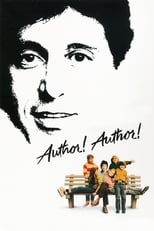
Title: Author! Author!
Character: Miss Knoph
Released: June 18, 1982
Type: Movie
A broadway playwright is burning the candle at both ends. He is dealing with pressure from a production nearing premiere, a wife who is leaving him, and 5 children 4 of which belong to her.

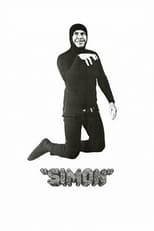
Title: Simon
Character: Lisa
Released: February 1, 1980
Type: Movie
A group of scientists take Simon, a psychology professor, as a test person for a brainwash experiment. After that they try to convince him that he was a living-being from another planet.

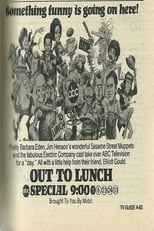
Title: Out to Lunch
Character: Self / Various Characters
Released: December 10, 1974
Type: Movie
The Muppets of Sesame Street and the cast of The Electric Company take over the ABC Nightly News when the newsroom staff takes a lunch break.

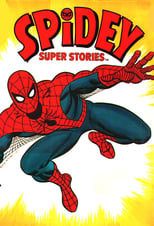
Title: Spidey Super Stories
Character: Creature
Released: October 21, 1974
Type: TV
A live-action, recurring skit on the PBS children's television series The Electric Company. Episodes featured the Marvel Comics character Spider-Man, provided to the Children's Television Workshop free of charge, and was played by puppeteer and dancer Danny Seagren.
Stories involved the masked superhero foiling mischievous characters who were involved in petty criminal activities. The cast of The Electric Company played the roles of the various characters in each story, with another serving as narrator. In many of these sketches, viewers were addressed as "true believers."
Unlike other live-action and cartoon productions of Spider-Man, this version of the web-slinging hero did not speak out loud, instead communicating only with word balloons, in order to encourage young viewers to practice their reading skills because he was drawn without a mouth. He also never appeared out of his costume as Peter Parker and, given the series' budget limitations, used his web-shooters sparingly.


Title: Spidey Super Stories
Character: Funny Bunny
Released: October 21, 1974
Type: TV
A live-action, recurring skit on the PBS children's television series The Electric Company. Episodes featured the Marvel Comics character Spider-Man, provided to the Children's Television Workshop free of charge, and was played by puppeteer and dancer Danny Seagren.
Stories involved the masked superhero foiling mischievous characters who were involved in petty criminal activities. The cast of The Electric Company played the roles of the various characters in each story, with another serving as narrator. In many of these sketches, viewers were addressed as "true believers."
Unlike other live-action and cartoon productions of Spider-Man, this version of the web-slinging hero did not speak out loud, instead communicating only with word balloons, in order to encourage young viewers to practice their reading skills because he was drawn without a mouth. He also never appeared out of his costume as Peter Parker and, given the series' budget limitations, used his web-shooters sparingly.


Title: Spidey Super Stories
Character: Unnamed moviegoer
Released: October 21, 1974
Type: TV
A live-action, recurring skit on the PBS children's television series The Electric Company. Episodes featured the Marvel Comics character Spider-Man, provided to the Children's Television Workshop free of charge, and was played by puppeteer and dancer Danny Seagren.
Stories involved the masked superhero foiling mischievous characters who were involved in petty criminal activities. The cast of The Electric Company played the roles of the various characters in each story, with another serving as narrator. In many of these sketches, viewers were addressed as "true believers."
Unlike other live-action and cartoon productions of Spider-Man, this version of the web-slinging hero did not speak out loud, instead communicating only with word balloons, in order to encourage young viewers to practice their reading skills because he was drawn without a mouth. He also never appeared out of his costume as Peter Parker and, given the series' budget limitations, used his web-shooters sparingly.

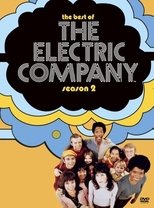
Title: The Electric Company
Released: October 25, 1971
Type: TV
The Electric Company is an educational American children's television series that was produced by the Children's Television Workshop for PBS in the United States. PBS broadcast 780 episodes over the course of its six seasons from October 25, 1971 to April 15, 1977. After it ceased production that year, the program continued in reruns from 1977 to 1985, the result of a decision made in 1975 to produce two final seasons for perpetual use. CTW produced the show at Teletape Studios Second Stage in Manhattan, the first home of Sesame Street.
The Electric Company employed sketch comedy and other devices to provide an entertaining program to help elementary school children develop their grammar and reading skills. It was intended for children who had graduated from CTW's flagship program, Sesame Street. Appropriately, the humor was more mature than what was seen there.
